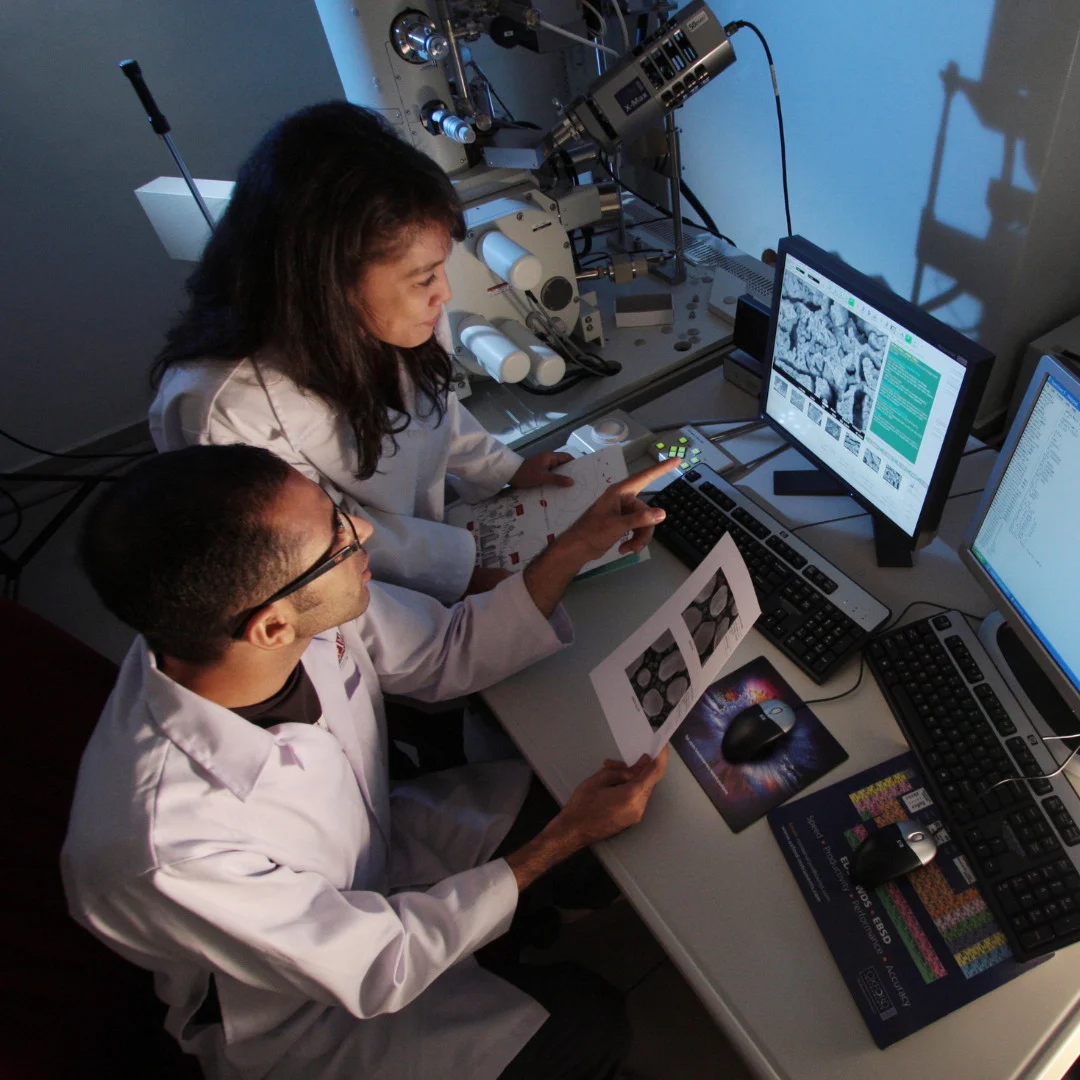Aligning with Innovators: Companies Known for Their Research Collaborations with Academics

by NotedSource
Venturing into corporate collaboration can serve as a dynamic shift for academics seeking to amplify the practical impact of their research. Identifying corporations known for their productive alliances with academic institutions is a key stepping stone towards such collaboration. A myriad of companies from different sectors have pioneered this collaborative approach, unifying the theoretical strengths of academia with the practical rigor of the corporate world. The confluence of these two distinct realms can yield innovative solutions with significant societal implications (1). As an academic, tapping into this synergy could represent the next milestone in your research journey.
Tech Giants: Google, Microsoft, and IBM
In the world of technology, giants such as Google, Microsoft, and IBM are notable for their robust partnerships with academic researchers. Google’s Research division is deeply rooted in its partnerships with the academic community, fostering a rich environment of shared knowledge and mutual growth (2). Likewise, Microsoft Research engages in a diverse array of partnerships with academic institutions across the globe, strengthening research capacities and driving cutting-edge innovations (3). IBM’s long-standing tradition of academic collaboration through its IBM Research division is also worth noting, as it amplifies research in key areas including artificial intelligence, quantum computing, and blockchain. Such collaborations signal the tech industry’s commitment to harnessing academic prowess in advancing technological frontiers (4).
Pharmaceutical Leaders: GlaxoSmithKline, AstraZeneca, and Pfizer
In the realm of pharmaceuticals, several key players actively engage with the academic world. GlaxoSmithKline (GSK) is at the forefront of such efforts, having established several collaborative initiatives like the ‘Immunology Network’. This venture amplifies interactions between academic researchers and GSK scientists, fueling advancements in immunology (5). Equally, AstraZeneca operates an ‘Open Innovation’ program that encourages scientific collaboration to address the complexities of disease management. Moreover, Pfizer’s strong partnership with academia through its ‘Centers for Therapeutic Innovation’ (CTI) is a testament to the transformative potential of academic-industry collaborations, especially in the realm of developing new therapies (6).
Energy Sector: ExxonMobil, Shell, and BP
Energy companies like ExxonMobil, Shell, and BP are also key collaborators with academic institutions. ExxonMobil champions sustainable energy solutions through its research partnerships. Shell, on the other hand, forges ties with academia through its Shell GameChanger and Shell TechWorks programs. These programs accelerate innovation and technology advancements in the energy sector. Moreover, BP demonstrates its commitment to academia through its BP International Centre for Advanced Materials (BP-ICAM), a collaboration with leading universities to drive research in material science. Such collaborations illuminate how academic-industry partnerships can catalyze breakthroughs in energy research and development (7).
Automotive Industry: Ford, Tesla, and General Motors
The automotive industry also demonstrates promising engagement with academia. Ford actively collaborates with universities worldwide on areas including autonomous vehicles, mobility, and advanced manufacturing. Despite being known for its secretive approach, Tesla has started to foray into academic collaborations, notably joining forces with Canadian universities to drive research in machine learning. General Motors also upholds strong connections with academic institutions through the GM University Collaborative Research Program, underscoring the potential for innovation when academia and industry unite (8).
Consumer Goods: Procter & Gamble, Unilever, and Nestle
In the consumer goods sector, companies such as Procter & Gamble, Unilever, and Nestle are forging stronger links with academic partners. Procter & Gamble’s ‘Connect + Develop’ program encourages collaboration with external partners, including academia, for product innovation. Both Unilever and Nestle maintain several research collaborations aimed at advancing product development and promoting sustainable practices. The initiatives of these consumer goods giants highlight the role of academic knowledge in shaping the future of consumer products and driving sustainable business practices (9).
Industry collaborations offer academics an alternative pathway for research application, with the potential to shape innovative solutions for pressing real-world problems. The companies explored in this article represent a sample of the wide array of organizations recognizing and harnessing the benefits of academic collaboration. As a researcher, identifying a suitable industry partner that aligns with your research interests, offers mutual benefits, and shares a vision for meaningful collaboration can help translate academic knowledge into tangible societal impact.
References
- Lee, Y. S. (2000). The sustainability of university-industry research collaboration: An empirical assessment. The Journal of Technology Transfer, 25(2), 111-133.
- Sedehi, H., & Lee, H. (2020). Academic engagement and commercialisation in the age of the fourth industrial revolution: A large-scale study of Google Scholar articles on university–industry collaboration. Technological Forecasting and Social Change, 158, 120176.
- Bishop, K., & D’Este, P. (2011). Gaining from interactions with universities: Multiple methods for nurturing absorptive capacity. Research Policy, 40(1), 30-40.
- Dornbusch, F., & Neuhausler, P. (2018). Composition of inventor teams and technological progress–Insights from the top R&D investors worldwide. The Journal of Technology Transfer, 43(5), 1210-1231.
- Blumenthal, D., Gluck, M., Louis, K. S., Stoto, M. A., & Wise, D. (1986). University-industry research relationships in biotechnology: implications for the university. Science, 232(4756), 1361-1366.
- Perkmann, M., Tartari, V., McKelvey, M., Autio, E., Broström, A., D’Este, P., … & Krabel, S. (2013). Academic engagement and commercialisation: A review of the literature on university–industry relations. Research policy, 42(2), 423-442.
- Perkmann, M., & Walsh, K. (2007). University–industry relationships and open innovation: Towards a research agenda. International Journal of Management Reviews, 9(4), 259-280.
- Pisano, G. P. (2006). Can science be a business? Lessons from biotech. Harvard Business Review, 84(10), 114.
- Tijssen, R. J., Yegros-Yegros, A., & Winnink, J. J. (2016). University-industry R&D linkage metrics: validity and applicability in world university rankings. Scientometrics, 109(2), 677-696.